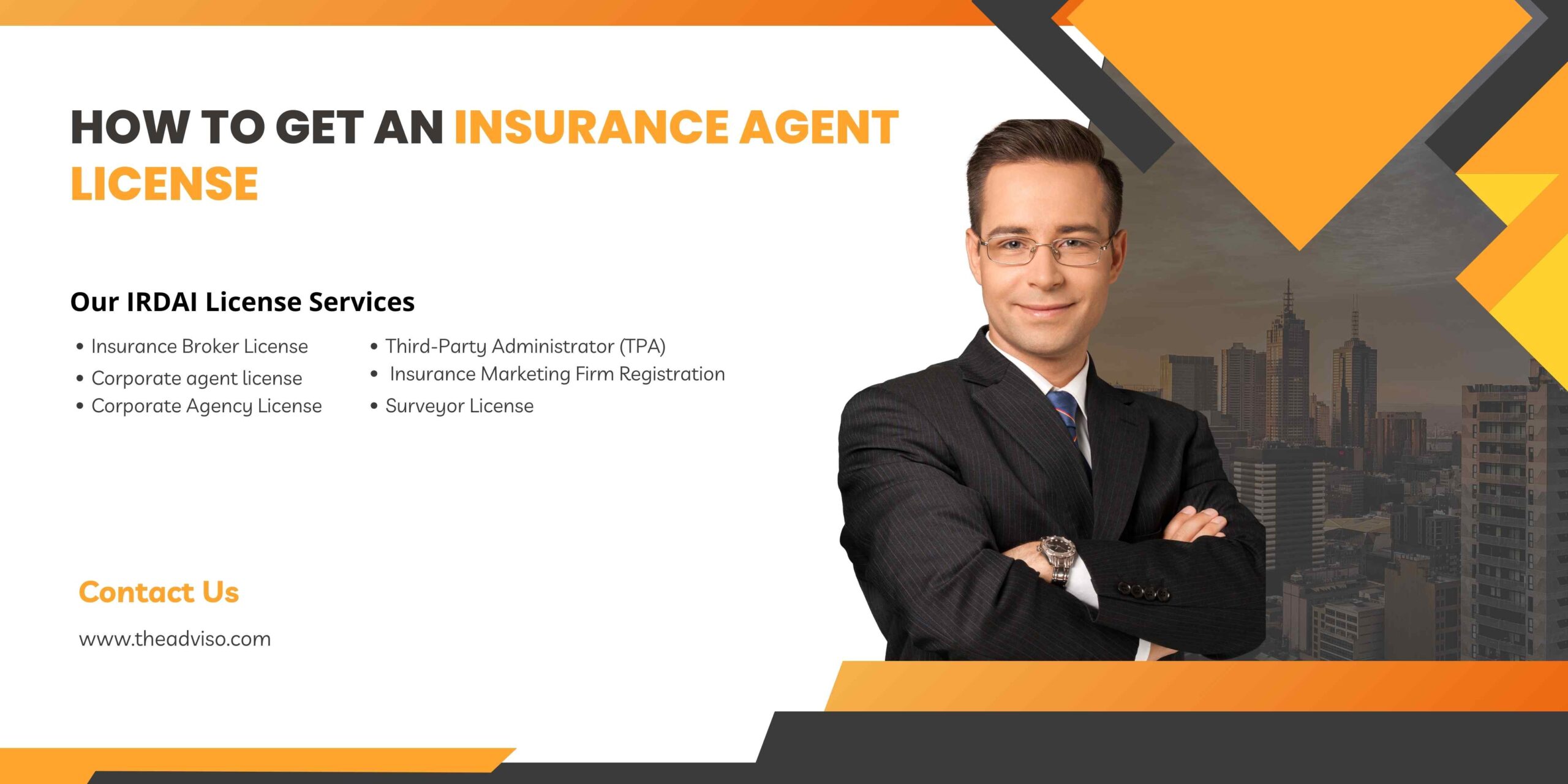How To Get an Insurance Agent License
The insurance sector in India has experienced booming growth in the past few years. This growth is fueled by ever-increasing demand and awareness for diverse insurance products among the masses. Due to strict competition, running an insurance business is an uphill task. That’s where a certified insurance agent comes into play. From soliciting insurance products to claim settlement, insurance agents serve as an aid for insurance companies grappling with sales and other business endevours. To become a certified agent, one must secure an IRDAI’s approval in the form of an insurance agent license. This blog post explores legalities around an insurance agent license, easing the blow for applicants.
Categories of an Insurance Agents/Brokers
Insurance brokers are classified into five main categories:
- Direct Broker (Life)
- Direct Broker (General)
- Direct Broker (Life & General)
- Reinsurance Broker
- Composite Broker
Direct Broker:
A Direct Broker is an IRDAI IRDAI-certified professional, who for remuneration or a fee, promotes and sells insurance products on behalf of the insurance company. Besides, they can provide services regarding claims and risk administration as per the IRDAI Insurance Brokers Regulations, 2018.
Reinsurance Broker:
These professionals also fall under the IRDAI and provide reinsurance arrangements for clients with insurers or reinsurers, either in India or abroad. Just like a direct broker, they can also serve endevours like claims consultancy and risk management services.
Composite Broker:
A Composite Broker can serve a dual role viz. Direct and Reinsurance Brokers. They arrange insurance and reinsurance services for clients and offer additional consultancy or risk management services as per the IRDAI guidelines.
Check out our stories: Top 7 IRDAI license services in India
Legalities to be Fulfilled for Securing an Insurance Agent License
| Requirement/Document | Description |
| Application Submission | Complete the application using FORM B – Schedule I as specified by the IRDAI (Insurance Brokers) regulations. |
| Document Checklist Submission | Attach all necessary documents as listed in FORM-C Schedule I under IRDAI rules. |
| Application Fee | – Direct Broker: ₹25,000 – Reinsurance Broker: ₹50,000 – Composite Broker: ₹75,000 |
| Registration Fee (Post Approval) | – Direct Broker: ₹50,000 (initial) or ₹1,00,000 (3-year renewal) – Reinsurance Broker: ₹1,50,000 (initial) or ₹3,00,000 (3-year renewal) – Composite Broker: ₹2,50,000 (initial) or ₹5,00,000 (3-year renewal) |
| Business Structure | Must be a Company as per the Companies Act 2013, an LLP under the Limited Liability Partnership Act 2008, a Cooperative Society (Cooperative Societies Act 1912), or any other legally authorized structure. |
| Capitalization Requirements | – Direct Broker: ₹75 Lakhs – Reinsurance Broker: ₹4 Crore – Composite Broker: ₹5 Crore |
| Minimum Net Worth | Net worth must meet the minimum threshold: – Direct Broker: ₹50 Lakhs – Reinsurance Broker: 50% of capital requirement – Composite Broker: 50% of capital requirement |
| Bank Deposit Requirement | – Direct Broker: ₹10 Lakhs – Reinsurance or Composite Broker: 10% of the minimum capital |
| Office Facilities | Must have sufficient office space, equipment, trained personnel, and IT systems to operate effectively. |
| Qualified Staff Requirement | Requires at least two certified staff members with relevant qualifications in insurance brokering for life and/or general insurance. |
| Principal Officer Requirements | – Should be a senior management figure, director, or partner. – Must meet experience and qualification criteria specific to insurance brokering. |
| Professional Indemnity Coverage | Mandatory professional indemnity insurance coverage for the full term of the registration, per Schedule II – Form S under IRDAI guidelines. |
| Business Purpose in Company Documents | The main objective in the Memorandum of Association (MOA) and Articles of Association (AOA) should focus on insurance brokering. |
| Foreign Investment Policy | Foreign investments are permissible within the insurance brokering sector. |
| Additional Information | Additional documents may be requested by authorities, with submission required within 30 days of the request. |
Steps to Secure Insurance Agent License in India
Securing an insurance agent license requires following the given steps. The time to secure such a license varies depending on the various factors such as:
- Type of license applied for
- Type of organization applicant seeking to work with
- Paperwork
- Compliances
Anyway, the steps for securing an insurance agent license are given below:
Step 1: Eligibility Criteria
Confirming the basic eligibility criteria for a certified agent is the first step in this process. Some of the basic requirements include:
- Age: 18 years old
- Nationality: Indian
- Minimum educational qualification: 10th class
- Legal document: A valid PAN card.
Step 2: Choose the type of Insurance
Choosing the type of insurance you wish to sell is the next step in this process. The insurance agents in India are classified as follows as per IRDAI:
- Life insurance agents: These agents are involved with the solicitation and selling of life insurance policies
- General insurance agents: These agents typically deal with the selling of policies belonging to domains like health, motor, and fire.
Step 3: Training and Certification
Upon choosing the insurance product you wish to sell, the next step involves undergoing mandatory training and certification falling under the ambit of the Insurance Regulatory and Development Authority of India (IRDAI).
Step 4: Obtaining a License
After completing the training program, the applicant stands eligible to apply for an insurance agent license. To apply, you must visit the IRDAI portal and fill out the prescribed form. Make sure to double-check everything when filling out the details, and attached paperwork as advised by the authority. Refer to the above table to learn about the paperwork.
Step 5: Join an Insurance Company
The last step is to apply for the role of an insurance agent in the concerned companies depending on the skill and training you have availed of. Once hired, you will be tasked with solicitation of insurance products, taking the company’s presence and sales to the next level.
Conclusion
Getting an insurance agent license is the first step forward in the ever-thriving insurance sector. Being a certified agent will give a sense of practicality and exposure to diverse insurance products and their implications. This will help solidify acumen with time, paving a foundation for a solid career.
It is paramount to learn some basic legalities when applying for an insurance agent license, or else you will confront unnecessary bureaucratic hurdles. To ease the blow, you can also contact Adviso, a premier agency for IRDAI’s approval and regulatory affairs. With our extensive and steadfast support, you can secure any IRDAI approvals promptly and seamlessly.
Also Read: A Comprehensive Guide to Register An Insurance Marketing Firm in India




